(Although I see ways to improve now what I wrote in 2016, I’ve resisted the urge to revise it and am sharing with you my 2016 version. — Mike)
All our life, our peer relationships bring us pleasure, affection and emotional support, advice and other practical help, and every kind of learning and growth, including physical, emotional, cognitive, and social.
From our peers we learn intimate communication, reciprocal trust, cooperation, mutual helpfulness, generous sharing, healthy competition, ways to handle aggression, negotiation, and compromise.
Friendly peers help us feel better about ourselves, weather stressful events, solve problems, and master challenges. Affirmation, agreement, and approval from our peers help validate our self-worth.
FRIENDLY BEHAVIOR AMONG TODDLERS
As early as 12 months, an infant may try to cure another person’s stress or anguish with what comforts the infant when he or she is stressed or anguished. There is even a rudimentary friendship among one-year-olds, as one baby gets feedback from another baby. (One baby puts a towel over his or her head and the other baby laughs.)
By 18 months of age, coordinated and complementary interaction and play are common. Toddlers chase each other, offer and receive toys, and imitate each other, including imitating how the other toddler plays with a toy. Conflicts over toys are common, and toddlers slowly learn to share. By age 2, many toddlers are proficient at taking turns. But they still prefer toys to their peers.
By 2 years old, toddlers suffer emotional pain when separated from their favorite fellow toddlers, and they rejoice at reunions. By age 2 or 3, a toddler can note other people’s feelings and can respond. A toddler will help another child who is hurt and will try to comfort another child who is sad.
By age 2-and-a-half, toddlers commonly engage in sustained attention, turn-taking, and mutual responsiveness with each other. By age 2-and-a-half to 3 years old, cooperative acting is common; toddlers take on roles and act in character. Mostly, toddlers toddle away and back, hug, laugh, climb on one another, and make sounds and funny faces — and take joy in just being together.
By age 3 or 4, almost all children prefer to play with their peers. And friendships revolve around play interests. By then, social behavior is becoming more complex, as young children behave differently with peers of different ages.
Very young children tend to settle conflicts with aggression and tears, and they can be demanding and hurtful. Still, they show helpfulness more often, and even tenderness, generosity, and altruism. Between age 3 and 6, young children become more and more aware of the emotions of others, and more and more willing to share.
Many 3-year-olds understand that people are sad when they fail and happy when they succeed. Many 4-year-olds understand that people’s behavior is governed by their beliefs and desires. And nearly every 4-year-old has the basic empathy of an adult, without the emotional complexity.
CHILDHOOD FRIENDSHIPS
By age 9 or 10, we understand that good friends take each other's opinions into account, share feelings, don’t betray a secret, help solve each other's problems, and care about making each other happy.
Friendships become more about loyalty, respect, kindness, affection, and attunement to each others' perspective. And with a shared history of communication and interaction — a long-term friendship — we experience real commitment to a peer.
FRIENDSHIPS AMONG YOUTH AND YOUNG ADULTS
As adolescents and young adults, we spend time together and share in activities, laughs, good times, and adventures, including some late-night conversations. The friendship is sustained by mutual interests, by relaxation, games, sports, and fun, by shared music, meals, and trips, or by shared volunteer work. And we can just be together.
Ideally, through pressures and challenges, we help each other to broaden our horizons and to experience the world with passion and depth.
As young adults, friends help each other to establish themselves and their families and to be better parents. We give each other help moving furniture, painting the house, making decisions, and minding each other's children.
Usually, we seek companions who mirror the best parts of our self-image. In our twenties and thirties we may ask, Does the friendship still validate who we are: a maturing young professional and a husband and father or wife and mother? If not, the friendship is likely to fade.
PATTERNS AMONG MALE FRIENDS AND FEMALE FRIENDS
Men usually form friendships with other men with whom they agree on issues and activities.
Males tend to talk (in groups) about business and work, sports, their political views and topical events, money, sources of personal pride, and what they like about other people (and, sometimes, marriage). Male conversation is more about power, winning, getting the upper hand, coming out on top, and being strong and heroic. Male conversations involve wit and one-up contests. Although avoiding failure is a major theme of men’s conversation, asking for advice is often regarded as weakness.
Men are more likely than women to avoid personal revelations and avoid discussing their feelings. Men tend to be rugged and self-reliant, and men’s warmth and affection is directed into jokes and fun, anecdotes and stories, acts of loyalty, and doing things side-by-side, including finding, getting, buying, making, or fixing something or fighting for something. However, most men will act heroically in a dangerous situation, and many men will risk or even sacrifice their own safety or life to rescue another person.
Women tend to look for friends with whom they are emotionally compatible. Women friends disclose more about themselves, including their fears and their feelings toward parents and other friends. Female conversation tends to be one-on-one and face-to-face, and females are more likely to use conversation to discuss their feelings, to establish a connection, to support and affirm each other, and to reach consensus.
CLOSE FRIENDSHIPS
In a close friendship, each friend cares about the others' well-being. We reach out to each other with interest and empathy, and we contribute to each others' lives and growth. We are committed, loyal, trustworthy, and helpful, and we stick by each other.
Close friends help each other get through stressful events like money problems, marital disruptions, and job failures. We stay with our friends through illness and the death of a loved one. We provide solace and keep each other's spirits up through setbacks, loss, grief, and other dark and difficult experiences.
As close friends, we believe in each other, contribute to each others' growth, and share a passion for each others' goals. We support each other as we explore the world, develop our skills, make the most of our talents, live out our dreams, and fulfill our promise and our destiny. And when our friends are flying high, we share their happiness and soar alongside them with joy.
As close friends, we begin to know the inner workings of each others' minds and wills. Our close friendships are marked by mutual fondness and trust, both of which are deepened by difficult events.
As true, close adult friends, we are sincere and truthful — free of deceit. We open up and speak freely, sharing our hopes and fears, our fantasies and dreams, revealing our inmost thoughts and feelings, and expressing our real selves. We keep confidences as we open up and share our full humanity with each other. We provide reassurance, comfort, and help. We offer each other constructive support, and each of us is open to reflective, sincere, and honest criticism.
We both know that the other is a flawed human being, but we esteem each other anyway. We accept each others' quirks. We indulge and forgive one another. We see each other at our worst and keep encouraging each other to be our best. We give each other advice and help each other wrestle with problems. We help each other face personal issues and tough truths, we hold each other accountable, and we challenge each other to lead a life of integrity.
In a comforting and exuberant friendship — in which it matters to us enormously that we matter to each other — we connect as two whole and total persons. Both friends are affirmed and validated and enter an enduring state of mutual trust. Many adult friendships are emotionally close and long-lasting.
MIDLIFE FRIENDSHIPS
In our forties and fifties we spend even more time with friends — usually, a few select friends. We are more interested with the quality of our friendships than how many friendships we have.
In midlife, we may form a new friendship with a person who complements who we are now. And we appreciate the friends who have been there all along, including friends we may have taken for granted.
Our old friends with whom we have witnessed and survived the ups and downs of life are now special friends with whom we review shared history and savor memories.
Now we are less frank about our differences. We let differences pass and we may even avoid arguments and simply value the meaning, happiness, and sense of well-being that we both find in the friendship.
FRIENDSHIPS BETWEEN ELDERS
Elder men and women are no longer afraid of solitude. And so it is not so bad to disagree with a friend, to be disappointed in someone, and to spend the evening alone.
In our elder years, most of our friendships are one-on-one. Elder male friendships tend to focus around card games and hobbies.
We tend to have a few close, high-quality relationships, centered around the pure pleasures of caring and being cared about.






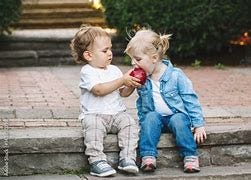

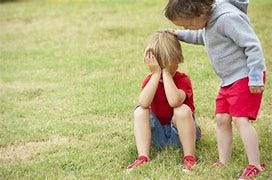




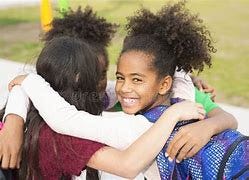







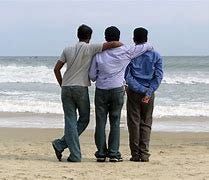








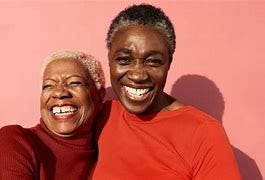
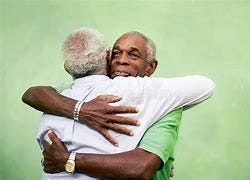
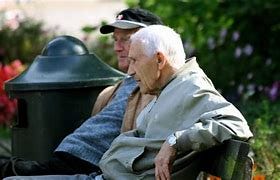


I like the progression and I am interested in what you updated from the original material. I come from a large family and liking children wasn't a given and caring for my younger siblings was a weighty obligation. It wasn't until I attended University and Psychology courses that I discovered the unique qualities of child development. Babysitting was a chore I would have rathered give the parent money to leave me alone ☺️ Once I discovered the value of fun and play over disapline when engaging with children everything changed! I started seeing those little ones as little people, and was endlessly fascinated by the way they interacted. I have observed that men start with fun and women disapline in terms of spending time with children. Fun rules! Children are wonderfully honest, playful and deeply compassionate and to be invited into their world is a great privilege. The friendship bits made me sad because I have had very few real friendships if any. I nurture myself more now and don't take on so much of others 'stuff' My greatest wish is to find my home and still have time for real friendships.
Thanks Mike for reposting this gift. We have to be reminded from time to time about the importance of developing and maintaining our friendships. They are the glue that makes our social and personal life fulfilling. I have recently reconnected with my school friends far away. It has been a most joyful and youthful experience. It is like we never stopped being friends. Friendships are also healing, encouraging as well as challenging. I love my friends! Francisco.